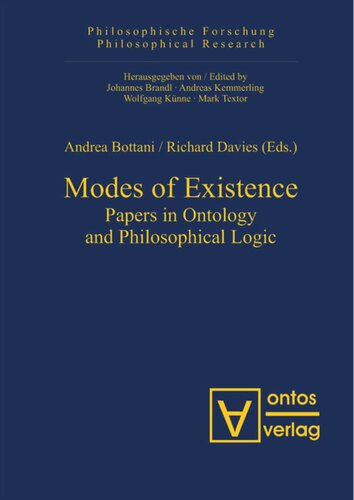

Most ebook files are in PDF format, so you can easily read them using various software such as Foxit Reader or directly on the Google Chrome browser.
Some ebook files are released by publishers in other formats such as .awz, .mobi, .epub, .fb2, etc. You may need to install specific software to read these formats on mobile/PC, such as Calibre.
Please read the tutorial at this link: https://ebookbell.com/faq
We offer FREE conversion to the popular formats you request; however, this may take some time. Therefore, right after payment, please email us, and we will try to provide the service as quickly as possible.
For some exceptional file formats or broken links (if any), please refrain from opening any disputes. Instead, email us first, and we will try to assist within a maximum of 6 hours.
EbookBell Team

4.8
34 reviewsThe volume collects essays by an international team of philosophers aimed at elucidating three fundamental and interconnected themes in ontology. In the first instance, there is the issue of the kind of thing that, in the primary sense, is or exists: must the primitive terms be particular or universal? Any reply will itself raise the question of how to treat discourse that appears to refer to things that cannot be met with in time and space: what difference is there between saying that someone is not sad and saying that something does not exist? If we can speak meaningfully about fictions, what makes those statements true (or false) and how can the entities in question be identified? Assessment of the options that have been opened up in these fields since the work of Bertrand Russell and Alexius Meinong at the beginning of the twentieth century remains an important testing-ground for metaphysical principles and intuitions.